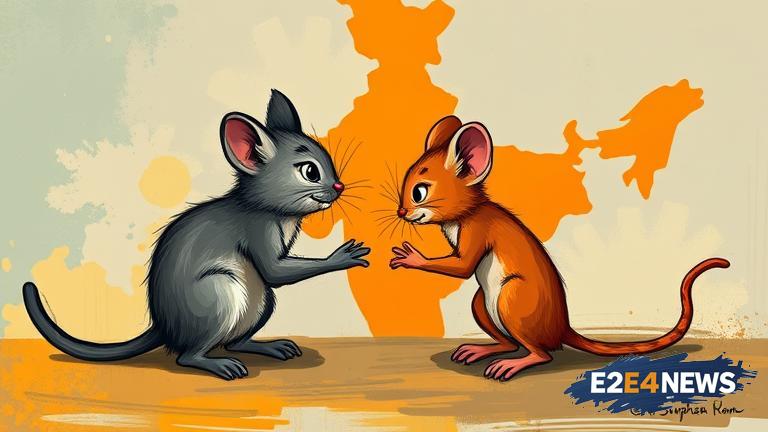The United States has been engaging in a trade war with several countries, including India, with tariffs being imposed on various goods. Recently, a former US official, Vance, admitted that tariffs are not just a means of protecting domestic industries, but also a geopolitical tool used to exert pressure on other nations. India, being a significant player in the global economy, has been affected by these tariffs. The US has imposed tariffs on Indian goods such as steel and aluminum, citing national security concerns. However, Vance’s admission suggests that these tariffs are also being used as a means of gaining leverage in geopolitical negotiations. The US has been seeking to renegotiate its trade agreements with several countries, including India, and the tariffs are being used as a bargaining chip. India has retaliated against the US tariffs by imposing its own tariffs on American goods. The trade war between the two countries has been ongoing for several months, with both sides refusing to back down. The US has also been critical of India’s trade policies, citing concerns over market access and intellectual property protection. India has argued that its trade policies are designed to protect its domestic industries and promote economic growth. The trade war has had significant implications for businesses in both countries, with many companies facing increased costs and uncertainty. The Indian government has been seeking to diversify its trade relationships and reduce its dependence on the US market. The country has been negotiating trade agreements with other nations, including the European Union and Japan. The US has also been seeking to strengthen its trade relationships with other countries, including those in the Asia-Pacific region. The trade war has also had significant geopolitical implications, with the US seeking to counter China’s growing influence in the region. India has been a key player in the US’s efforts to counter China, with the two countries cooperating on several strategic initiatives. However, the trade war has also created tensions between the two countries, with India seeking to protect its own interests. The Indian government has been critical of the US’s trade policies, citing concerns over protectionism and unfair trade practices. The US has also been critical of India’s trade policies, citing concerns over market access and intellectual property protection. Despite the tensions, both countries have been seeking to find a resolution to the trade war. The US has been seeking to negotiate a trade agreement with India, which would provide greater market access for American companies. India has been seeking to negotiate a trade agreement that would provide greater benefits for its domestic industries. The trade war has also had significant implications for the global economy, with many countries facing increased uncertainty and risk. The World Trade Organization has been seeking to play a mediating role in the trade war, with the organization’s director-general calling for calm and restraint. The trade war has also had significant implications for the environment, with many companies facing increased costs and uncertainty. The Indian government has been seeking to promote sustainable trade practices and reduce its carbon footprint. The US has also been seeking to promote sustainable trade practices, with the country’s trade policies focusing on environmental protection and conservation.
